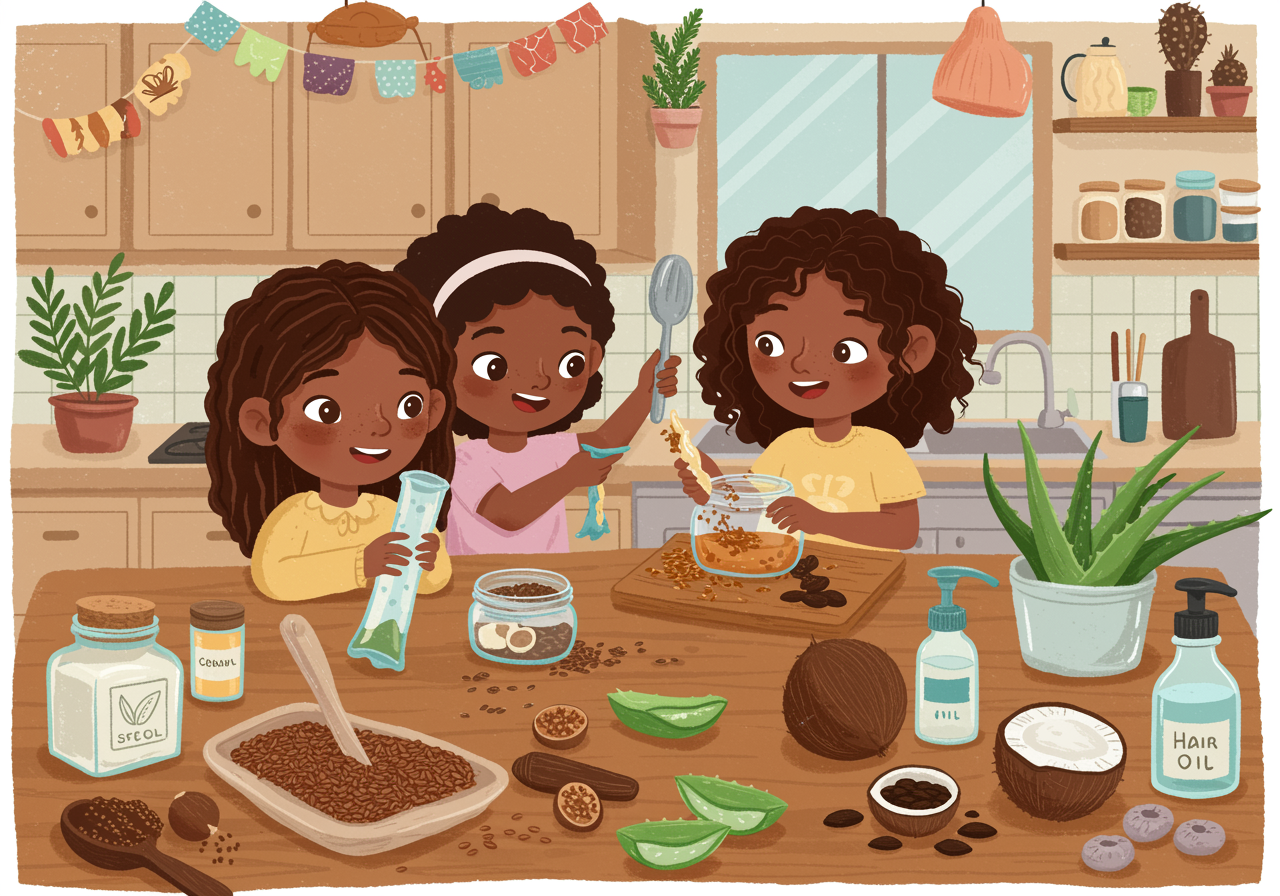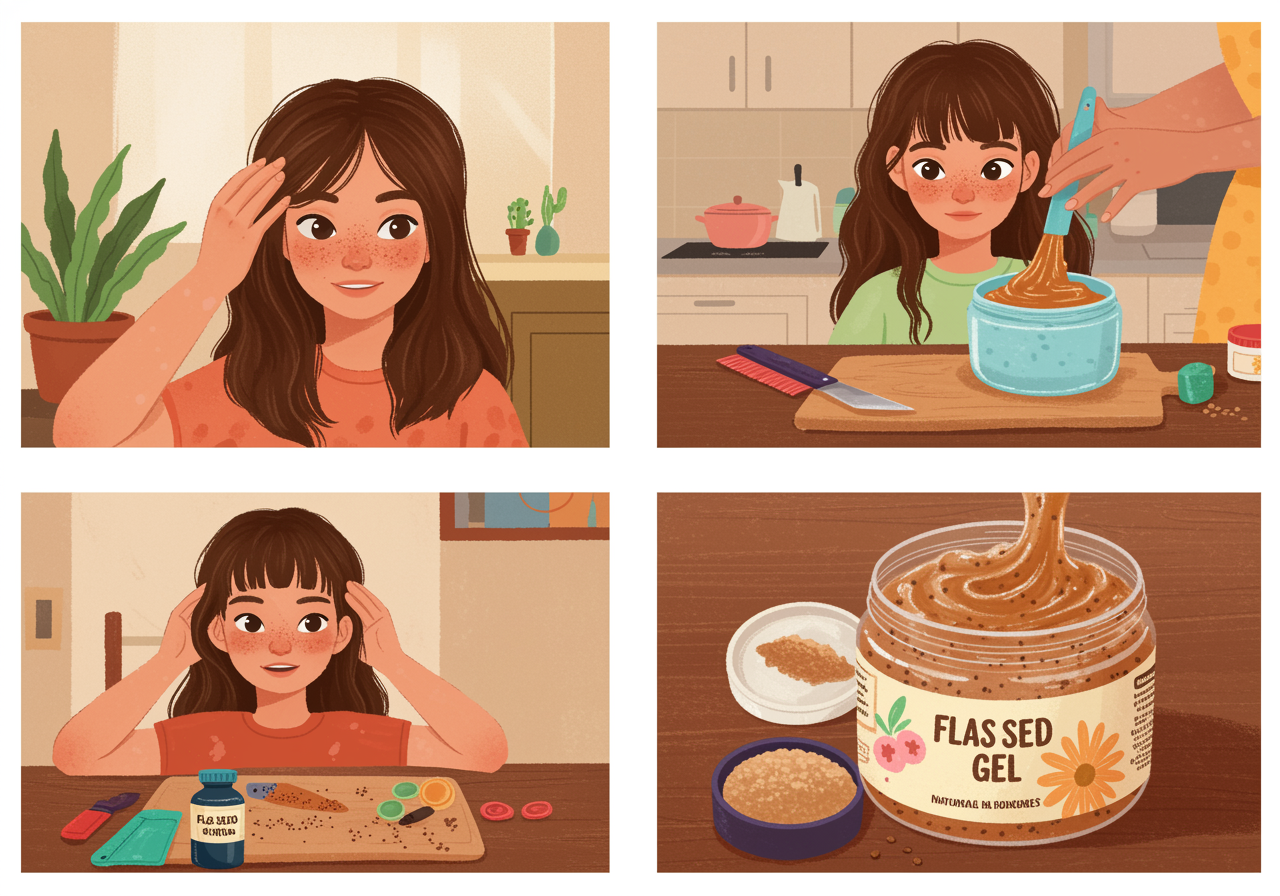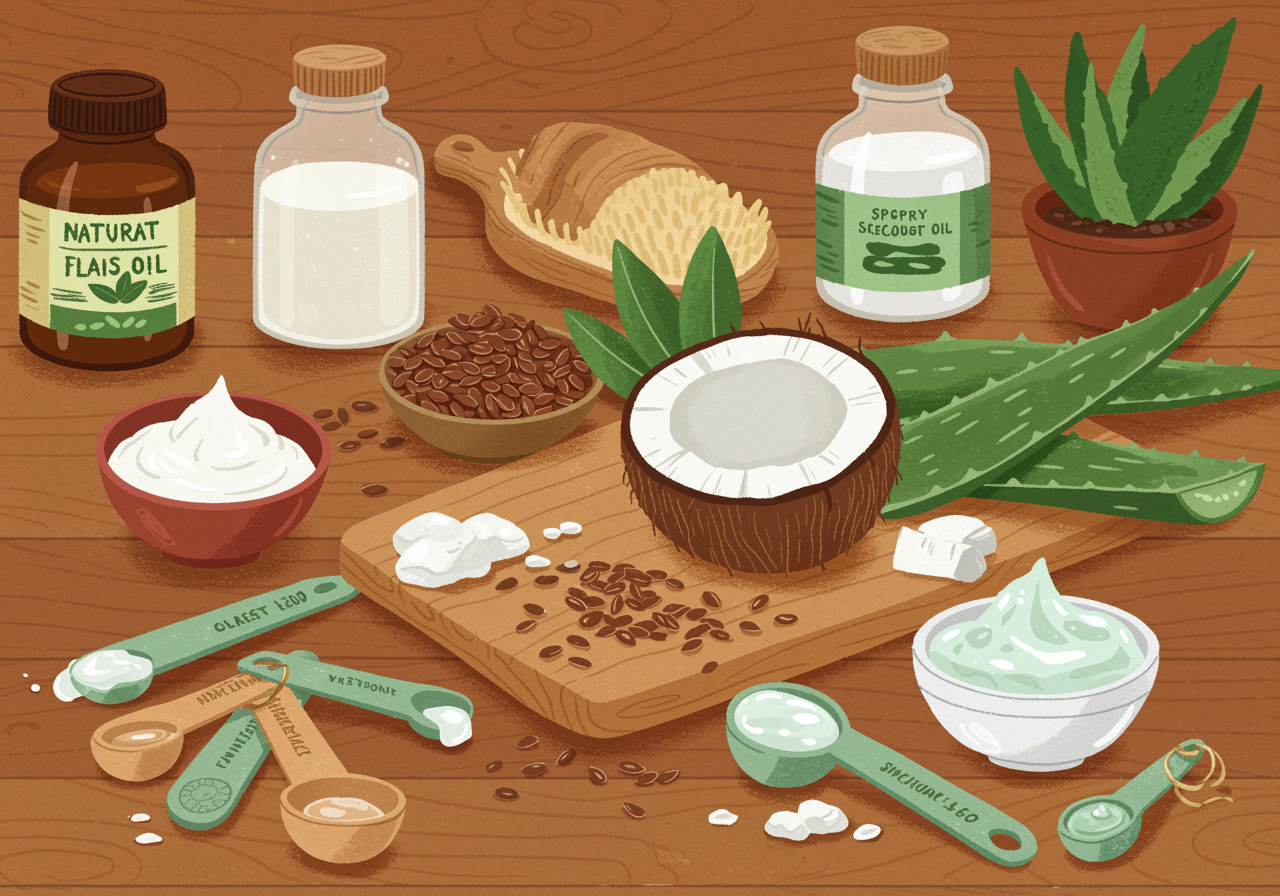Hair-Raising Science: Natural Styling That Rocks Your Look AND the Planet!
Discover how kitchen ingredients can become your hair’s new best friends
Explore the amazing science behind natural hair care that keeps you looking awesome while giving Earth a high-five!
Overview
Have you ever wondered what's actually IN that bottle of hair gel or shampoo? Your hair routine is like a daily chemistry experiment, and the ingredients you choose affect both your body and our planet's health! From the chemicals that wash down our drains to the plastic bottles piling up in landfills, our hair care choices make a bigger impact than most people realize. The cool news? Some of the best hair styling ingredients might already be sitting in your kitchen, and they work because of fascinating science!

Understand in 30 Seconds
Get up to speed quickly
- Your Hair is Alive (Sort Of!): Hair is made of protein called keratin, and natural oils and ingredients work WITH your hair's structure instead of fighting against it like harsh chemicals do.
- Kitchen Chemistry Works: Ingredients like flax seeds create natural polymers (fancy chains of molecules) that hold your hair in place just like store-bought gel!
- Less Plastic, More Fantastic: Most hair products come in plastic bottles that take 450+ years to break down, but many natural alternatives use zero packaging or reusable containers.
- Your Scalp is Smart: Your scalp naturally produces oils to protect your hair, and gentle natural ingredients help this system work better instead of stripping everything away.
Real Life Scenario
Situations you can relate to
Imagine you're getting ready for school photos and your hair just won't cooperate! Your usual gel ran out, but wait – your mom is making flax seed smoothies. Those tiny seeds aren't just healthy to eat; when you boil them, they release a gooey gel that's basically nature's hair product! The science is wild: flax seeds contain mucilage, which forms long chains of molecules that create hold without the harsh alcohols and sulfates in regular products. Plus, when you rinse it out, you're not sending mysterious chemicals down the drain into rivers where fish live. Have you ever thought about where your hair products go after they wash down the sink?

Role Play
Spark a conversation with “what if” scenarios
What if you were a hair detective investigating what's in different products?
- Role play: Read ingredient labels together and research what each chemical does – play 'Can you pronounce this?' and see which products have ingredients you actually recognize!
What if you opened a natural hair salon that only used kitchen ingredients?
- Role play: Create a 'menu' of DIY hair treatments using items from your pantry – avocado masks, honey conditioners, apple cider vinegar rinses – and explain the science behind each!
What if you had to style your hair for a month using only things that won't hurt the environment?
- Role play: Plan a month-long challenge to try different natural styling methods and track how your hair feels, looks, and how much plastic waste you avoid!
FAQs
Frequently asked questions people want to know
Do natural hair products actually work as well as store-bought ones?
Many do! Aloe vera gel provides hold, coconut oil conditions better than many expensive treatments, and flax seed gel rivals commercial styling products. It might take some experimenting to find what works for your hair type.
Are natural ingredients always safer than chemicals?
Not automatically – everything is made of chemicals, even water! But many natural ingredients are gentler and don't contain hormone disruptors or harsh sulfates that can irritate skin or damage hair over time.
Why are regular hair products bad for the environment?
The plastic packaging creates long-lasting waste, many chemicals don't break down in water treatment plants, and some ingredients like certain sulfates can harm aquatic life when they reach rivers and oceans.
Examples in the Wild
See how this works day to day
- L'Oréal has committed to using 100% renewable or bio-based carbon in all their products by 2030 (L'Oréal Sustainability Report 2023)
- Ethique solid shampoo bars prevent the equivalent of 3 plastic bottles from being manufactured (Environmental Working Group)
- Studies show flax seed gel provides comparable hold to commercial styling products while being completely biodegradable (Journal of Cosmetic Science 2022)
- Microplastics from beauty products have been found in 90% of table salt brands worldwide (Environmental Science & Technology Journal)
In Summary
What you should know before you start
- Natural hair styling alternatives often work just as well as commercial products because they work WITH your hair's natural structure
- Kitchen ingredients like flax seeds, aloe vera, and coconut oil contain the same active compounds found in expensive hair products
- Switching to natural alternatives reduces plastic waste and keeps harsh chemicals out of waterways
- Your scalp and hair are healthier when you avoid sulfates, parabens, and artificial fragrances that can cause irritation
Pro-tip for Parents
You got this!
If your teen is skeptical about trying 'weird' natural ingredients on their hair, start with one simple swap like replacing regular conditioner with coconut oil once a week. Let them research the science behind why it works – when kids understand the 'why,' they're more likely to experiment. Also, frame it as a fun science experiment rather than a 'healthy' choice, and let them lead the research on what ingredients might work for their specific hair type.

Keep an Eye Out For
Find these examples in everyday life
- New 'waterless' beauty products hitting stores that eliminate plastic bottles and reduce shipping emissions
- Your teen experimenting with different hairstyles – perfect time to try natural styling alternatives
- News stories about microplastics in the ocean or chemical pollution in waterways – great conversation starters about product choices
Explore Beyond
Look up these related research topics
- The chemistry of soap and why some 'clean' better than others
- How cosmetic companies test products and what 'cruelty-free' really means
- The lifecycle of plastic and where your containers really go after recycling